We’re fortunate enough to be living in the middle of a Missy Elliott resurgence — not that she ever went away.
Three decades into her groundbreaking career, Missy is readying her very first headlining tour, which begins July 4 in Vancouver, British Columbia. The Out of This World Tour runs through August and features her longtime collaborators Timbaland, Busta Rhymes, and Ciara.
The fact that it is her first headlining tour may be surprising, given that she’s been on the scene since debuting with the group Sista in the mid-1990s, and has been a chart-topping star since becoming a solo artist in 1997.
The hip-hop icon released her last full-length album, The Cookbook, nearly two decades ago but time hasn’t diminished her influence at all. In fact, we’re all still catching up to the futuristic vision that Missy and Timbaland introduced to the world in the late 1990s in their songs and videos.
Missy began her career as a member of Sista, which was a part of the Swing Mob, a musical collective working under Jodeci’s DeVanté Swing. That crew included a number of future world-changers, including Missy, Timbaland, Ginuwine, Tweet, Stevie J., and two legends who have since passed on, Magoo and Static Major. After Sista was dropped from their label, Missy, by all accounts, would have been perfectly happy to settle into a life as a songwriter and producer. But something bigger was beckoning.
Persuaded by Elektra’s Sylvia Rhone with the promise of her own label, Missy agreed to turn in one album as a solo artist. That album, 1997’s Supa Dupa Fly, made Missy not just a star but an icon, and changed the course of her life. It began a career that, over a quarter-century later, found her inducted into both the Rock and Roll Hall of Fame and the Songwriters Hall of Fame — she was the first female rapper ever to be nominated for the latter.
And that’s just the beginning of the accolades. There are the four GRAMMY wins and head-spinning 22 nominations. She was also honored alongside Dr. Dre, Lil Wayne (who has not been shy about calling Missy his favorite rapper), and the woman who gave Missy her first solo record deal, Sylvia Rhone, at 2023’s Black Music Collective’s Recording Academy Honors event. Missy was also a key participant in the GRAMMYs tribute to a half-century of hip-hop that same year.
Throughout it all, Missy has remained humble. When speaking to GRAMMY.com in 2022, she reflected on how she and longtime collaborator Timbaland had no idea of their impact at the time.
“We really just came out with a sound that we had been doing for some time, but we had no clue that it would be game changing, that we would change the cadence — the sound of what was happening at that time,” she said. “No clue!”
“Her whole existence is based on moving us and influencing us,” says her longtime manager Mona Scott-Young. “She wants to be able to touch people.”
And that she has. To celebrate the Missy-aissance, GRAMMY.com spoke with Missy’s colleagues and collaborators for an insider’s view on the course of her career and what makes the four-time GRAMMY winner unique.
The quotes and comments used in this feature were edited for clarity and brevity.
Missy’s Impact Began With Her First Guest Verse
The first time many people took note of Missy Elliott was her verse on the 1996 remix of Gina Thompson’s “That Thing You Do.”
Gina Thompson (singer): I was in the process of completing my first album, Nobody Does It Better. Actually, it was complete. So what happened was, my A&R at the time, Bruce Carbone at Mercury Records, wanted to have Puffy do the remix.
Puffy was like, “We have this person that’s really talented. Her name’s Missy, and she used to be with the group Sista, and she’s a phenomenal writer. She’s working with a lot of other artists, she’s definitely the next big thing in the R&B/hip-hop world.” We were like, cool.
I believe we actually heard it over the speaker phone in Bruce’s office. I know that I said that I loved it, and I felt her style was unique and different. It grew on me in a great way. I just felt like it was a smash. She definitely had added a great touch to it. I was super-excited about it.
Merlin Bobb (former Executive Vice President, Elektra Records): I was blown away by the simple fact that I knew she was a great songwriter. But when I heard her rhyming, I thought it was the most unique style that I had heard in some time.
Digital Black (former member of Playa, part of the Swing Mob): A lot of people only knew her as a writer or an R&B artist, but when she came on that Gina Thompson record with that rap, it changed everything. It allowed her to be even more herself.
Mona Scott-Young (manager): Oh my God, have you heard that song? It’s her ability to use expression and evoke emotion without even using words. She said, “He he he haw,” and we all found a new way to bounce. There was something fun and magical and different that spoke to what we would come to know was this incredibly vivid imagination that would take us places sonically and visually that we didn’t even know we needed to be.
She Changed The Sound Of Hip-Hop With Her Debut LP
Missy’s first solo album, Supa Dupa Fly, came out the following year. It gave new energy to a hip-hop scene that was still reeling from the deaths of 2Pac and Biggie.
Anne Kristoff (former Vice President of PR, Elektra): She 100 percent did not want to be an artist. She’s like, “I’m not an artist. I want to be Diane Warren. I’m going to write the songs. I’m going to be behind the scenes.”
Merlin Bobb: I started talking to her regarding being an artist. She was totally against it. “No, I want to be a songwriter.” And also, just to be honest, [Sista] had been dropped from Elektra prior to my conversations with her, so she wasn’t too eager, I think, to jump back aboard.
It took about six or seven months of us discussing ways to do this. I spoke to Sylvia [Rhone, then-head of Elektra], and I said, “She’s an incredible songwriter. Let’s offer her a production deal or a label deal where she can not only just look at herself as an artist, but at the same time develop and nurture artists under her own banner.” Sylvia thought it was a great idea.
We both talked to Missy about it, and she said, “Okay, I’ll do one album.” I was ecstatic because she was writing some great songs, but she also gave us her first album, which was, needless to say, a classic.
Kathy Iandoli (author, “God Save the Queens: The Essential History of Women in Hip-Hop and Baby Girl: Better Known as Aaliyah”): In God Save the Queens, I referred to her as the Andy Warhol of hip-hop, in the sense that she took the art and the cultural aspect of it, and she just put this spin and interpretation of the art that no one had ever really done prior.
With Missy’s arrival around ‘97, we were at a point in time where hip-hop was in a complete state of confusion. We did not know where it was going to go. Missy made high art hip-hop that was commercially accessible. And for that, she changed the entire game.
Gina Thompson: When she had her first project with the whole vision — not only her sound, but her songwriting style, the look — everyone was like, “This girl went out on edge. I’m gonna do a little bit of the same thing and not be so worried if I don’t sound so average, what people are going to think. Because she’s out on the edge doing it.” And I promise you, ever since she came out, that you started hearing a lot more of female rappers tweaking their voices.
Lenny Holmes (guitarist): In hip-hop, everybody would think that it’s a whole bunch of computer generated stuff. Missy Elliott does not approach it like that. She loves live instrumentation, but she likes to take bits and pieces of it. She simplifies it, and it is placed uniquely in the track at certain points. That’s what makes up the structure of the song.
Mona Scott-Young: Everything from the way she looked to what she was talking about to the way she delivered that music and what she represented in terms of being nonconforming, not looking like the other female rappers of the day — I think all of those elements were the perfect lightning in a bottle. The way she rode that beat, both lyrically and with her delivery, was very, very different from everything else that we were hearing.
Read more: Revisiting ‘Supa Dupa Fly’ At 25: Missy Elliott Is Still Inspired By Her Debut Record
She Reinvented The Music Video
You can’t think of Missy Elliott without picturing her iconic music videos, many done in collaboration with director Hype Williams.
Brian Greenspoon (former International Publicist, Elektra): I mean, she came out of the gate wearing a garbage bag, and made it the coolest thing anyone had ever seen.
Merlin Bobb: She said, if I put out this album — initially we were talking about a single deal, but we went into an album — there’s two things very important to me: the dance aspect and the visual aspect.
Kathy Iandoli: The thing that I really loved about Missy’s music videos, she was a big budget music video person. She got the men’s music video budget.
Anne Kristoff: When you think about the “Rain” video — I’m just guessing, I don’t want to put words in her mouth — but I think when she saw that the vision in her head could become real out in the world, that anything she could think of could happen, that maybe it made it a little more fun for her to be an artist. I hope.
Digital Black: Missy is one of the funniest people you’ll ever meet. People maybe don’t know. She loves joking. So that was just her being her.
Gina Thompson: You started seeing a lot of people doing certain robotic-type images or moves in their videos to almost mimic her “Supa Dupa Fly.” She’s the creator of that.
Earl Baskerville (manager/producer): Missy would get with the director, and she would sit there and go over the whole treatment. A lot of the visuals came from her. She was very hands on. Today, you can shoot a video in four or five hours. But Missy’s video shoots was so long, I used to hate it. We would be there fifteen hours for a three minute video!
She Was Avant-Garde But Still Pop
Missy’s musical and visual style was like nothing anyone had ever seen. Yet she still became a star. How did she manage to be both innovative and accessible?
Kathy Iandoli: You can’t make something that the general public can’t access, or speak over their heads.
Digital Black: Even if you said it sounded weird, it still had some soulfulness to it. I think that was what allowed her to touch so many different people.
Merlin Bobb: When you have an artist that stands out, but it doesn’t go over your head musically, artistically, lyrically, then it works. People, when they heard and experienced something new and fresh that was easy to digest, but it was unique, they gravitated to it.
Brian Greenspoon: How was it sold to a mass audience? I mean, the sound was breakthrough. What Timbaland was doing with drum sounds, and the way they were building these very sparse rhythms and sound beds, they were breaking ground. But the thing that worked is that they had these incredible songs that Missy was writing and that she had these incredible featured artists on.
Gina Thompson: To try to figure out what her brain is doing, I’ve been gave that up.
Earl Baskerville: Nobody could figure out what we were doing, because they couldn’t understand the sound.
Lenny Holmes: Her rhythmic style of how she would do the vocals was just unheard of. Like, doubling up accents. The things that she started doing — you would hear a deejay do a scratch on a record. You would not hear a singer do it. I was like, What in the world?
Anne Kristoff: She was doing these really creative things that no one else was doing visually. And the sound was different than whatever everyone else was doing. So it wasn’t a hard sell for the press.
She Was A Master At Working With Other Artists
Missy was far more than just a solo star. All throughout her career, she continued her first love: writing and producing for other artists — including Ciara, Aaliyah, Destiny’s Child, and Whitney Houston.
Lenny Holmes: Missy had a great relationship with singers and rappers, because she could do both. A lot of people don’t know, but Missy can sing. So when we worked with groups that had singing parts on them, a lot of times she would go ahead and lay down the guide track for the actual artist to sing.
Kathy Iandoli: Missy just really understood the artists that she worked with. She saw their strengths, and she helped them utilize them to the best of their capabilities.
Angelique Miles (former music publishing executive): She was able to relate to the artist and express that artist. She was able to customize and express that artist’s story. Whatever she wrote for 702 didn’t sound like what she wrote for Whitney Houston.
Digital Black: She was good at listening to the artist, seeing what they do, and then, how can you enhance what they do well? Those are the best records. She was great at tailor-making records for people, just from her doing her due diligence on learning who the artist is. Not just going in, “I’m Missy, I can write whatever.” I’m gonna write something specifically for you that enhances what you’ve already done.
Merlin Bobb: She would have made an incredible A&R person. I would have hired her back then. She was able to come up with lyrics and melodies and songs and chords and production that to me stood out. She worked with both male and female artists. She really knew how to get an artist not only to sing a great song, but to sing very uniquely and in their own way, because she was a great vocal production coach.
Mona Scott-Young: She’s always listening beyond what we hear. Even if there’s a song an artist has [that she’s not involved with], she’ll say, “Yeah, I would have done this thing differently with this artist. Because if you listen to what she did on this one part of the song, you can hear that there’s more range there. But for some reason they didn’t push her to go there.” That to me is just one of the things that makes her such a great producer and star finder, because she always is looking for what more they can do and how they can challenge themselves to be better.
Earl Baskerville: She had signed an artist that I used to manage named Mocha. And she told Mocha to go in there and just rap. I think Mocha might have did 30-something bars, 60 bars. know. Missy listened to all of the stuff she did, took it, and dissected it. She went in there and took eight bars, not from the beginning of the track — I don’t know where she found it, in the middle or something — and put it on the Nicole Wray record “Make It Hot.” When Mocha comes in, that’s actually the middle of the verse somewhere! That was crazy to me.
Her First Love Was Always Songwriting
Through it all, Missy’s strength remained (and remains) her songwriting. But what makes her songs stand out, and stand the test of time?
Earl Baskerville: Missy didn’t want to be an artist. She just wanted to be a songwriter.
Merlin Bobb: Her songwriting was very soulful, but it also had great melodic edge to it. They’re very realistic lyrics to a young scene that was happening in R&B and hip-hop at the time. So it was somewhat of a fusion of R&B and hip-hop lyrically, and she just had a very strong sense of melody and great hook lines.
Mona Scott-Young: She wasn’t talking about the same thing that we were hearing from a lot of the other females in the genre at the time — overt sexuality and material possessions and that kind of stuff. She was engaging, having a good time lyrically, and holding her own with her male counterparts.
She was giving us music that was great, and it didn’t matter that it was coming from a female. She was kind of this androgynous being that was delivering great music. You listen to the song, you just want to party.
Read more: Missy Elliott Makes History As First Female Rapper Nominated For Songwriters Hall Of Fame
She Changed The Artists Who Came After Her
As with all major innovations, it didn’t take long after Missy broke big for her influence to be felt.
Kathy Iandoli: The special relationship between Aaliyah, Missy, and Timbaland was the fact that together they all created a new sound that would set the standard of hip-hop and what we now define as alt-R&B. They invented a new subgenre. It was something that Missy was able to continue along and then create a sound on her own terms.
Gina Thompson: Many people were trying to emulate her whole different style.
Lenny Holmes: [Were people copying her?] Most definitely. But there’s only one Missy. And I got to say, there’s only one Timbaland too. You hear that trademark voice or the trademark lick, and you just know that’s them.
Brian Greenspoon: I think she influenced just about everybody that came after her. The sound of hip-hop changed after her and Timbaland dropped that music. The way the people produced their drum sounds and their beats, the use of hi hats, it all changed based on Missy and Timbaland.
Merlin Bobb: Most hip-hop/R&B collaborations at that time were hip-hop records with vocal hooks from R&B artists. She kind of flipped it, where she worked from the R&B side and made the vocals and the production more hip-hop friendly.
Mona Scott-Young: Her whole existence is based on moving us and influencing us. She wants to be able to touch people. So when we see artists who you can hear or see the influence, then you know that she’s done her job.
There’s so many artists — Flyana Boss, a little bit Cardi, a little bit Nicki. They all, I think, have been influenced by Missy, her look, her sound, in one way, shape or form. And that is the greatest compliment, to inspire a generation and see them take what you’ve done to another level. But then she’s constantly also evolving and keeping everyone on their toes.
Learn more: 8 Ways Aaliyah Empowered A Generation Of Female R&B Stars
Considering Missy And Her Legacy
Everyone interviewed for this piece had so much love for Missy. Here’s a small sample.
Brian Greenspoon: Missy is one of the most professional, talented, creative artists I’ve ever had the luck to work with. I’m happy to see that she is being recognized for being the icon that we all saw that she was becoming back then.
Lenny Holmes: Even today, in whatever we’re doing, we use what we’ve learned from Missy Elliott. It’s mixed in whatever we do. It’s amazing what she has done for herself, but she has definitely helped people along the way, and we will forever be grateful to her.
Digital Black: She’s a one-of-one, God-given talent. She earned every award, every accolade, accomplishment. Her work ethic was phenomenal, and nothing was given. Big sis earned everything, and I just want to say I love her, and it’s been a pleasure and an honor to be a part of her career.
Kathy Iandoli: There’s so much of the art that we have right now that we have to thank her for.
Mona Scott-Young: This has been an incredible journey. I always talk about being incredibly blessed to have had the opportunity to play a role when you have somebody like her who has touched so many people globally and whose music and entire presence hold this special place in fans’ hearts.
Every day it’s just about, how do we continue to push forth, break boundaries, challenge ourselves to do things bigger and better than we did it the last go round.
Explore The Artists Who Changed Hip-Hop
50 Artists Who Changed Rap: Jay-Z, The Notorious B.I.G., Dr. Dre, Nicki Minaj, Kendrick Lamar, Eminem & More
Hip-Hop Just Rang In 50 Years As A Genre. What Will Its Next 50 Years Look Like?
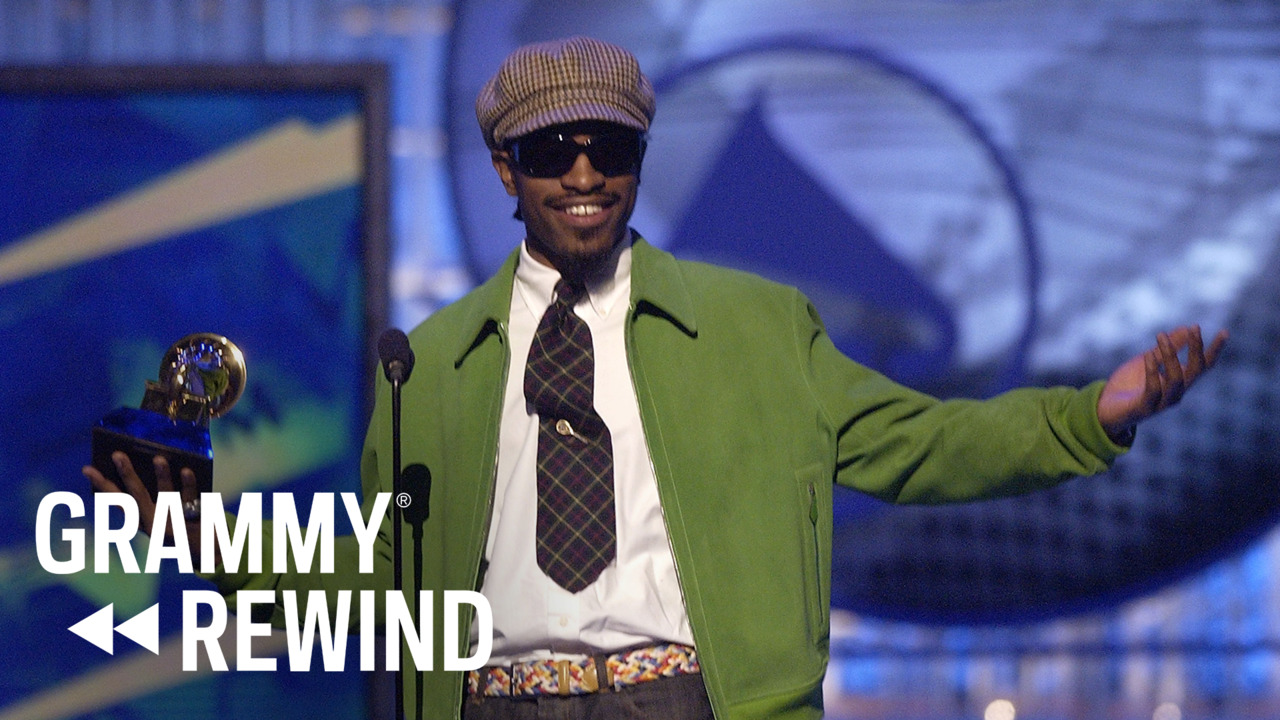
Watch Outkast Humbly Win Album Of The Year For ‘Speakerboxxx/The Love Below’ In 2004 | GRAMMY Rewind
A Brief History Of Hip-Hop At 50: Rap’s Evolution From A Bronx Party To The GRAMMY Stage
GRAMMY Museum To Celebrate 50 Years Of Hip-Hop With ‘Hip-Hop America: The Mixtape Exhibit’ Opening Oct. 7
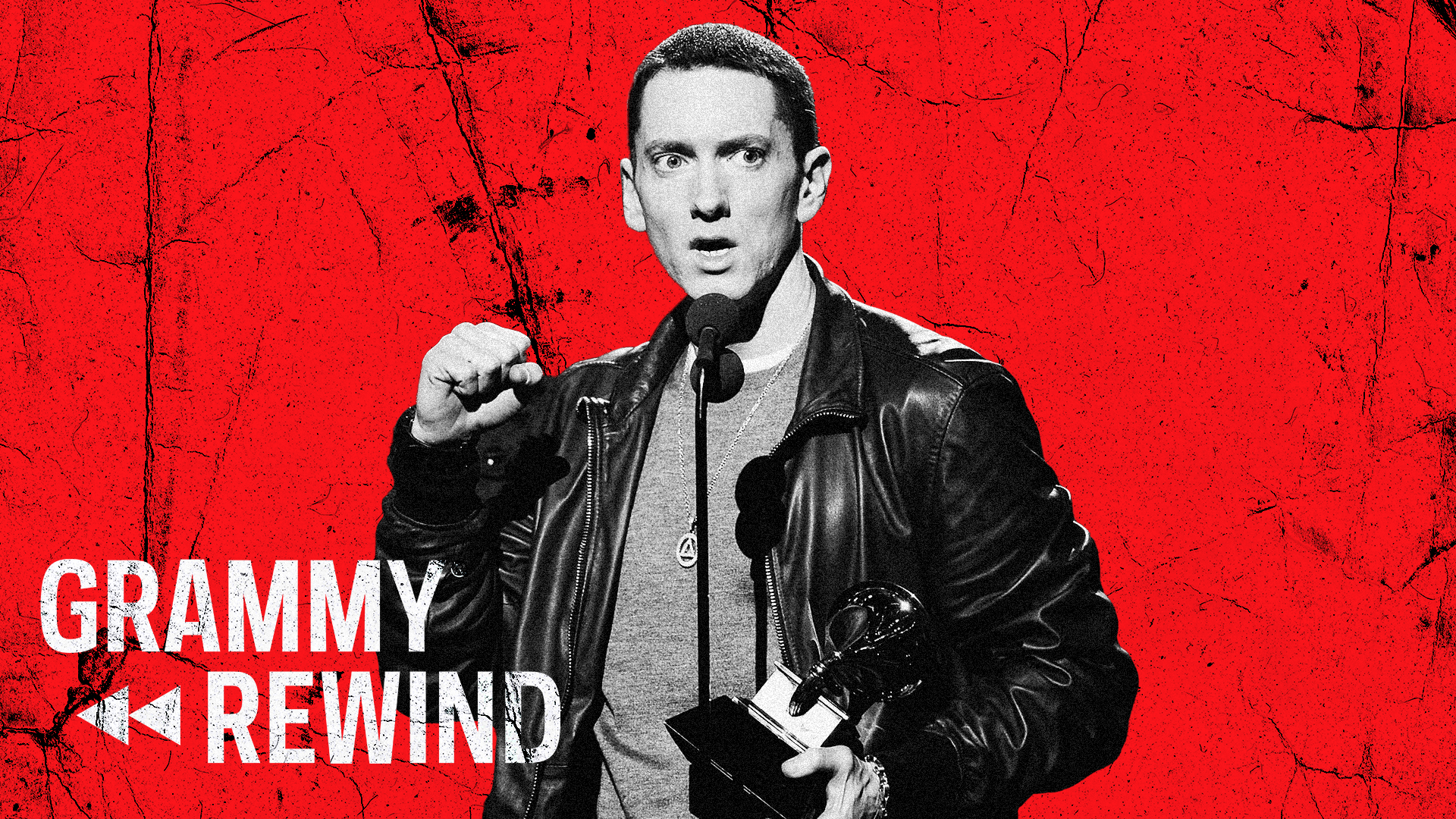
Watch Eminem Show Love to Detroit And Rihanna During Best Rap Album Win In 2011 | GRAMMY Rewind
Listen To GRAMMY.com’s 50th Anniversary Of Hip-Hop Playlist: 50 Songs That Show The Genre’s Evolution
14 New Female Hip-Hop Artists To Know In 2023: Lil Simz, Ice Spice, Babyxsosa & More
6 Artists Expanding The Boundaries Of Hip-Hop In 2023: Lil Yachty, McKinley Dixon, Princess Nokia & More
Watch 41 Bring The Hype With A Cover Of DMX’s Hit “Party Up (Up In Here)” | Hip-Hop Re:Defined
The 10 Most Controversial Samples In Hip-Hop History
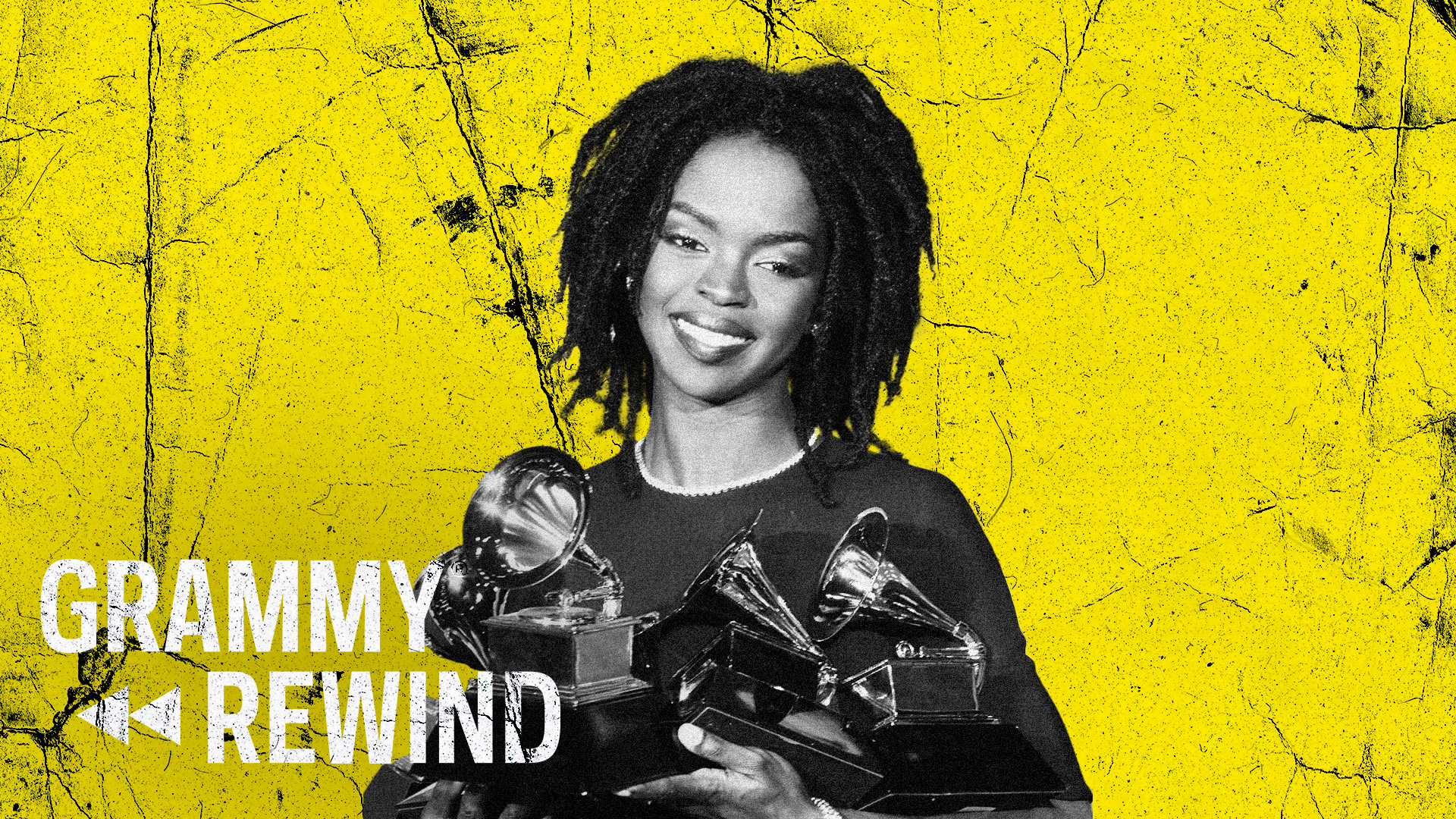
Watch Lauryn Hill Win Best New Artist At The 1999 GRAMMYs | GRAMMY Rewind
19 Concerts And Events Celebrating The 50th Anniversary Of Hip-Hop
Founding Father DJ Kool Herc & First Lady Cindy Campbell Celebrate Hip-Hop’s 50th Anniversary
A Guide To New York Hip-Hop: Unpacking The Sound Of Rap’s Birthplace From The Bronx To Staten Island
A Guide To Southern California Hip-Hop: Definitive Releases, Artists & Subgenres From L.A. & Beyond
10 Crucial Hip-Hop Albums Turning 30 In 2023: ‘Enter The Wu-Tang,’ ‘DoggyStyle,’ ‘Buhloone Mindstate’ & More
The Nicki Minaj Essentials: 15 Singles To Showcase Her Rap And Pop Versatility
11 Hip-Hop Subgenres To Know: From Jersey Club To G-Funk And Drill
5 Essential Hip-Hop Releases From The 2020s: Drake, Lil Baby, Ice Spice, 21 Savage & More
A Guide To Southern Hip-Hop: Definitive Releases, Artists & Subgenres From The Dirty South
A Guide To Bay Area Hip-Hop: Definitive Releases, Artists & Subgenres From Northern California
A Guide To Texas Hip-Hop: Definitive Releases, Artists & Events
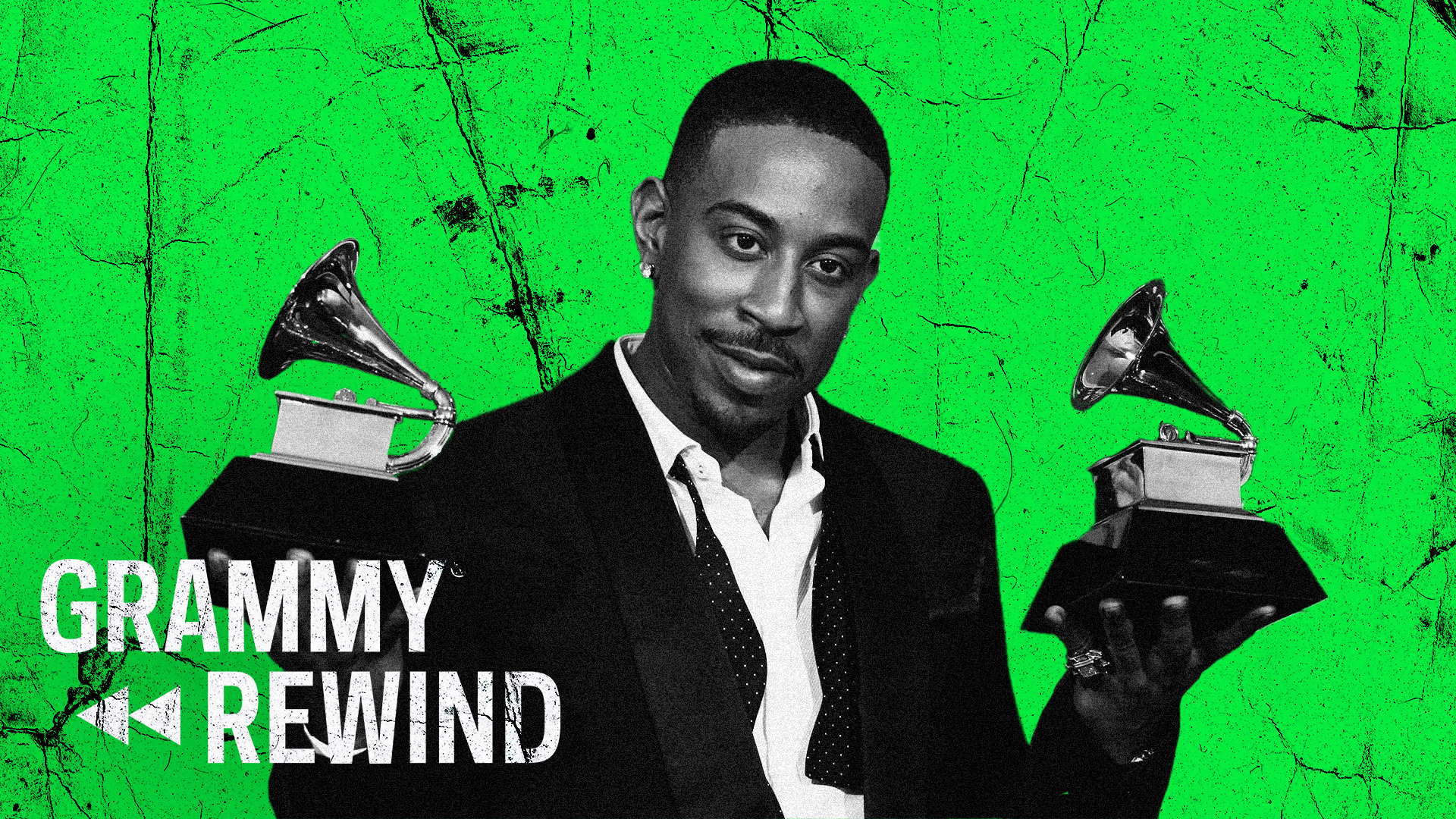
Ludacris Dedicates 2007 Best Rap Album GRAMMY To His Dad | GRAMMY Rewind
Unearthing ‘Diamonds’: Lil Peep Collaborator ILoveMakonnen Shares The Story Behind Their Long-Awaited Album
10 Bingeworthy Hip-Hop Podcasts: From “Caresha Please” To “Trapital”
Revisiting ‘The Miseducation Of Lauryn Hill’: Why The Multiple GRAMMY-Winning Record Is Still Everything 25 Years Later
Watch Asha Imuno Personalize Kendrick Lamar’s “i” With A Sparkling New Chorus | Hip-Hop Re:Defined
10 Must-See Exhibitions And Activations Celebrating The 50th Anniversary Of Hip-Hop
5 Artists Showing The Future Of AAPI Representation In Rap: Audrey Nuna, TiaCorine & More
‘Invasion of Privacy’ Turns 5: How Cardi B’s Bold Debut Album Redefined Millennial Hip-Hop
10 Songs That Show Doja Cat’s Rap Skills: From “Vegas” To “Tia Tamara” & “Rules”
Watch Olen Put A Dreamy, Melodic Spin On Childish Gambino’s “Heartbeat” | Hip-Hop Re:Defined
6 Must-Watch Hip-Hop Documentaries: ‘Hip-Hop x Siempre,’ ‘My Mic Sounds Nice’ & More…
Essential Hip-Hop Releases From The 2010s: Ye, Cardi B, Kendrick Lamar & More
6 Takeaways From Netflix’s “Ladies First: A Story Of Women In Hip-Hop”
How Drake & 21 Savage Became Rap’s In-Demand Duo: A Timeline Of Their Friendship, Collabs, Lawsuits And More
5 Takeaways From Travis Scott’s New Album ‘UTOPIA’
Essential Hip-Hop Releases From The 2000s: T.I., Lil Wayne, Kid Cudi & More
Songbook: How Jay-Z Created The ‘Blueprint’ For Rap’s Greatest Of All Time
Ladies First: 10 Essential Albums By Female Rappers
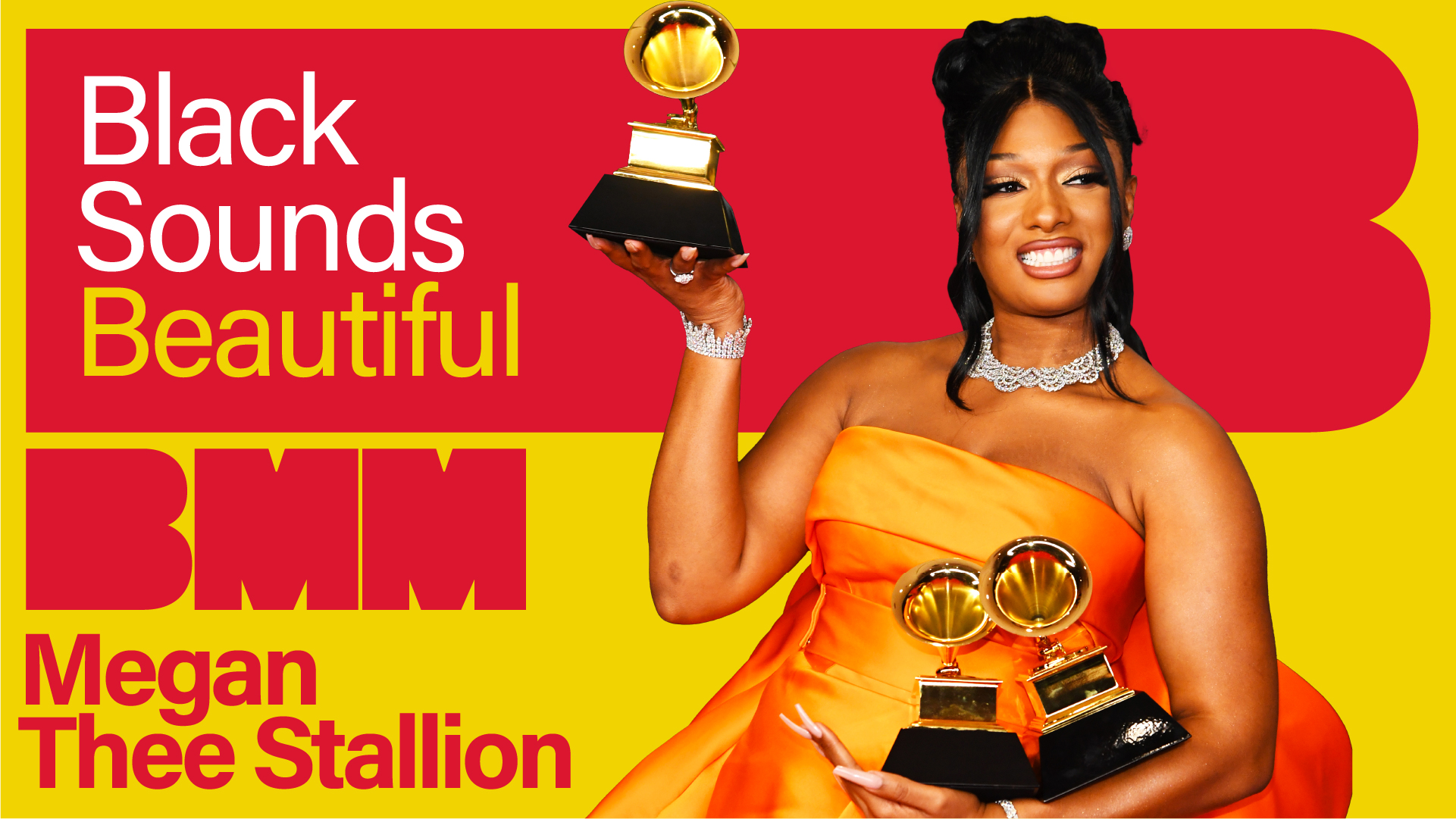
How Megan Thee Stallion Turned Viral Fame Into A GRAMMY-Winning Rap Career | Black Sounds Beautiful
How Hip-Hop Took Over The 2023 GRAMMYs, From The Golden Anniversary To ‘God Did’
5 Things We Learned At “An Evening With Chuck D” At The GRAMMY Museum
Remembering De La Soul’s David Jolicoeur, a.k.a. Dave and Trugoy the Dove: 5 Essential Tracks
Catching Up With Hank Shocklee: From Architecting The Sound Of Public Enemy To Pop Hits & The Silver Screen
Meet The First-Time GRAMMY Nominee: GloRilla On Bonding with Cardi B, How Faith And Manifestation Helped Her Achieve Success
Hip-Hop’s Secret Weapon: Producer Boi-1da On Working With Kendrick, Staying Humble And Doing The Unorthodox
Essential Hip-Hop Releases From The 1990s: Snoop Dogg, Digable Planets, Jay-Z & More
10 Albums That Showcase The Deep Connection Between Hip-Hop And Jazz: De La Soul, A Tribe Called Quest, Kendrick Lamar & More
Hip-Hop Education: How 50 Years Of Music & Culture Impact Curricula Worldwide
Women In Hip-Hop: 7 Trailblazers Whose Behind-The-Scenes Efforts Define The Culture
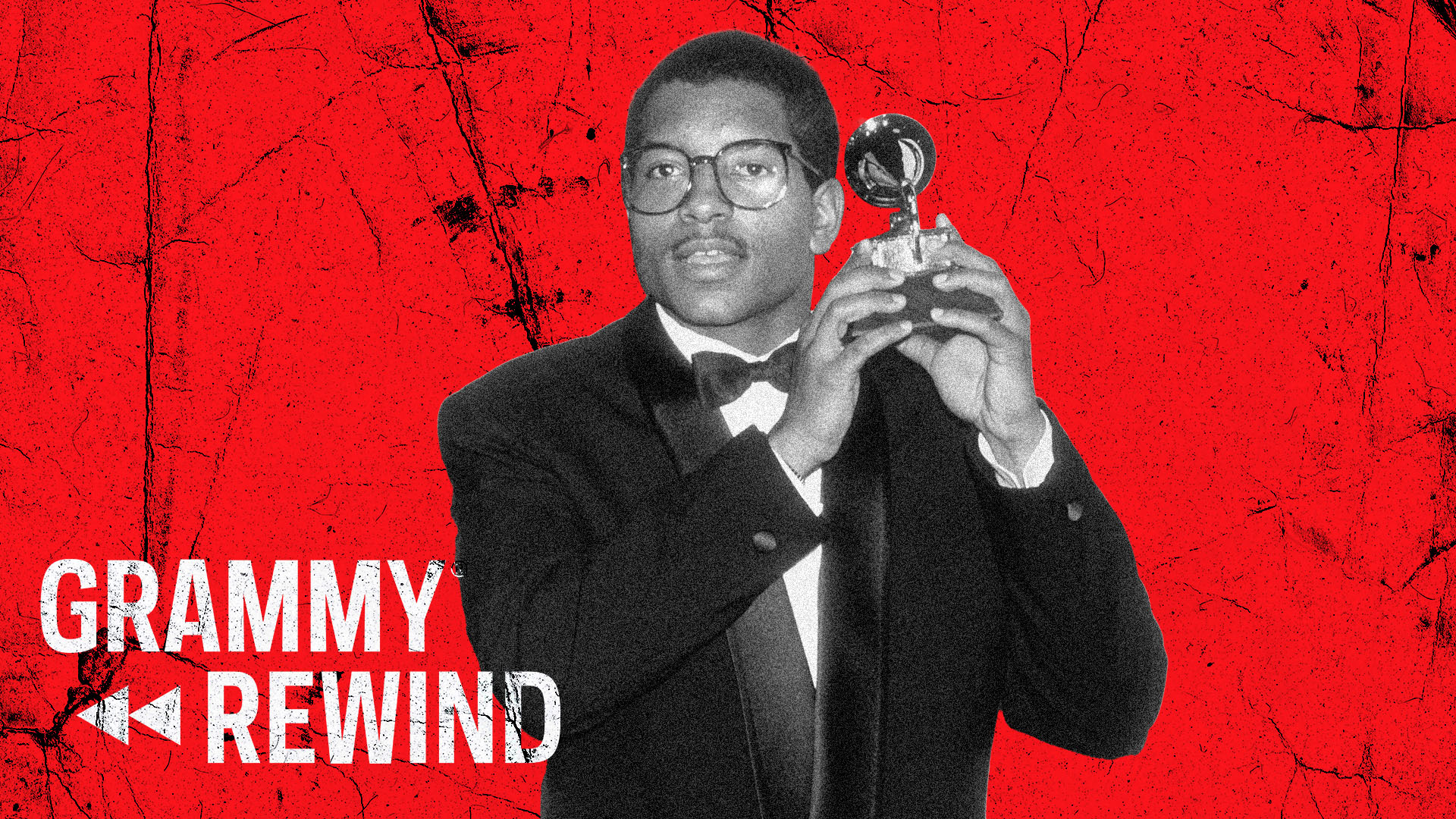
Watch Flavor Flav Crash Young MC’s Speech After “Bust A Move” Wins In 1990 | GRAMMY Rewind
Essential Hip-Hop Releases From The 1980s: Slick Rick, RUN-D.M.C., De La Soul & More
Lighters Up! 10 Essential Reggae Hip-Hop Fusions
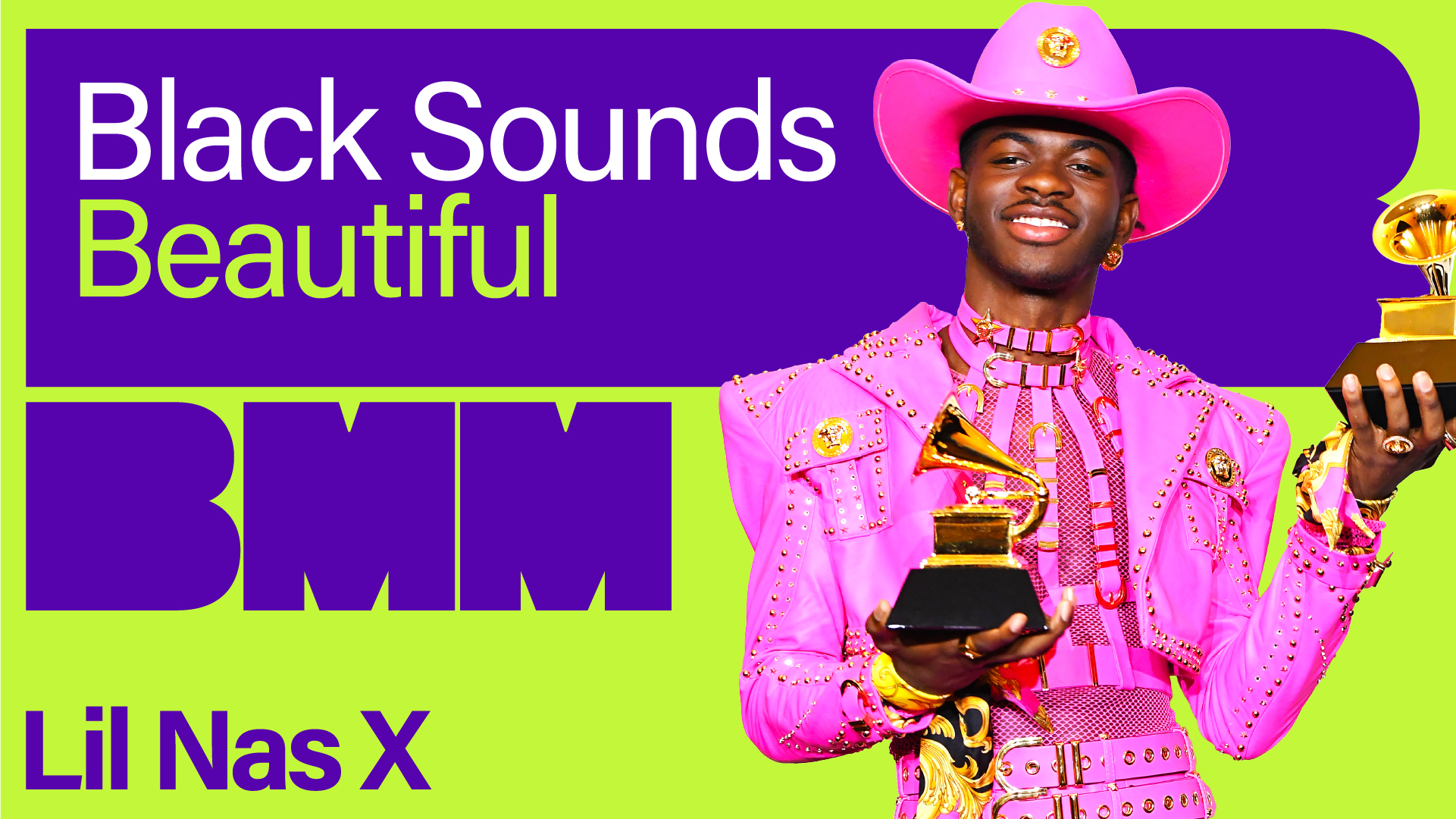
How Lil Nas X Turned The Industry On Its Head With “Old Town Road” & Beyond | Black Sounds Beautiful
9 Teen Girls Who Built Hip-Hop: Roxanne Shante, J.J. Fadd, Angie Martinez & More
Essential Hip-Hop Releases From The 1970s: Kurtis Blow, Grandmaster Flash, Sugarhill Gang & More
Killer Mike Says His New Album, ‘Michael,’ Is “Like A Prodigal Son Coming Home”
5 Takeaways From ‘TLC Forever’: Left-Eye’s Misunderstood Reputation, Chilli’s Motherhood Revelation, T-Boz’s Health Struggles & More
Watch Eva B Perform “Sunrise In Lyari” Through The Streets Of Pakistan | Global Spin
This post was originally published on this site be sure to check out more of their content.






